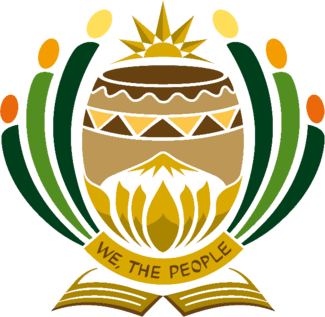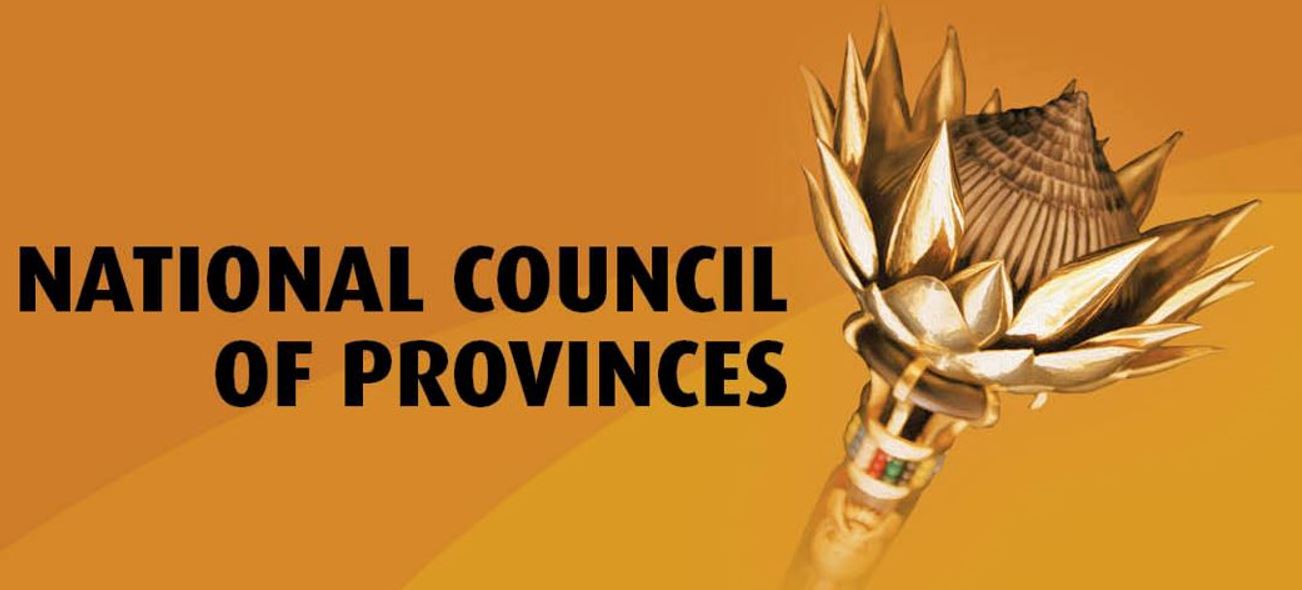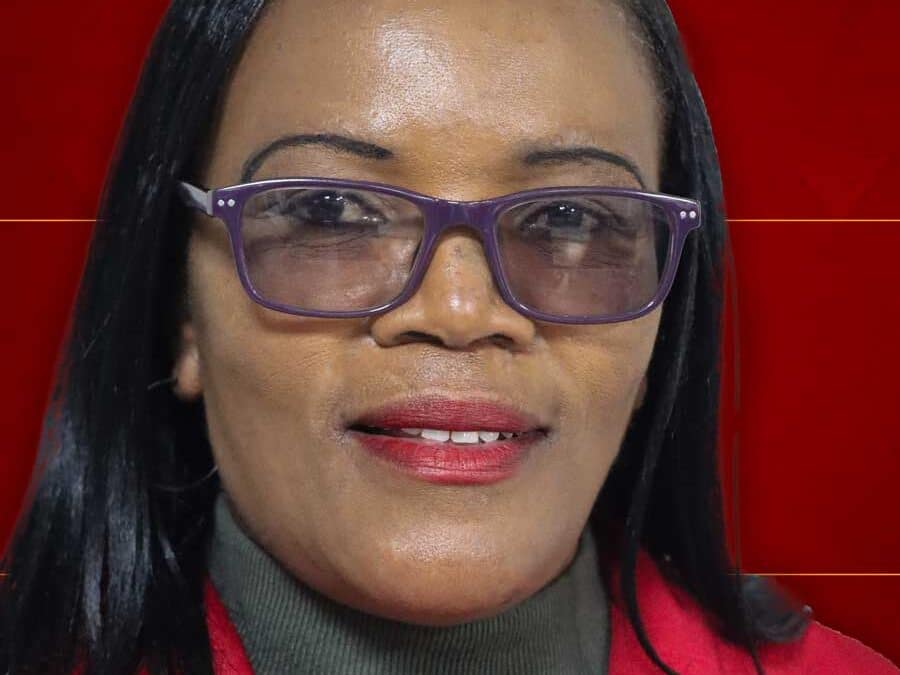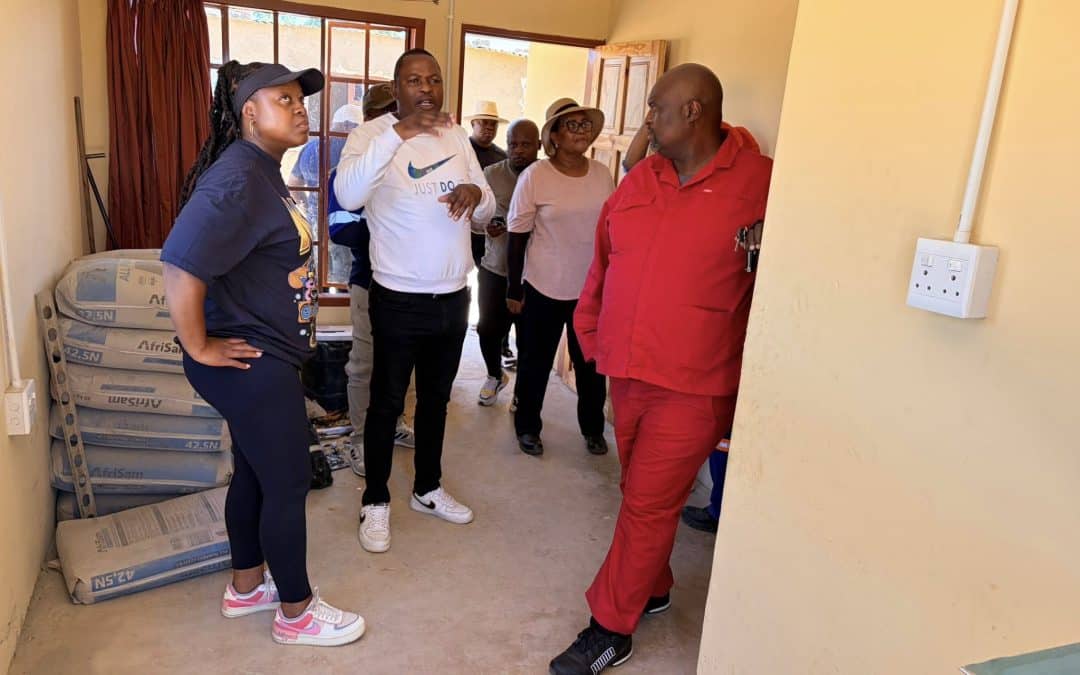
THE NATIONAL COUNCIL OF PROVICENCES (NCOP)

The National council of Provinces is one of the two Houses of Parliament. The institution was established by the Constitution to replace the old Senate and to represent the interest of the provinces and local government at the national level. Also to ensure that provinces participate in the national legislature process.
Members of the Council are drawn from the Provincial Legislatures to represent their provinces.
The National Council of Provinces construction is based around the notion of nine provincial delegations, with each province having the same number of votes irrespective of size or wealth.
Each province has 10 delegates. There are 4 special and 6 permanent delegates. The delegation is headed by the Premier of each province who is one of the special delegates. If necessary, the Premier can appoint someone to take his or her place.
Each provincial delegation of ten (10) reflect the party political power balance of the particular North West Provincial Legislature and will comprise of the following:
• Six (6) Permanent delegates;
• The Premier of the Province, or when he or she is unavailable, a designated substitute drawn from the North West Provincial Legislature;
• Three special delegates, who must also be members of the North West Provincial Legislature wit the concurrence of the Premier.
The allocation of the Permanent delegate and special delegate to the North West Provincial Legislature is governed by Clause 7 (1) (b) of schedule 6 of the final Constitution.

How does one become a member of the National Council of Provinces?
Within days after an election the North West Provincial Legislature will nominate six delegates whose names were put forward by political parties that secured seats in the Council according to a formular outlined in the Constitution. In addition, there are four special delegates who attend sittings based on the bill or debates before the House.
How the National Council of Province Work?
After the National Assembly has passed a Bill (draft law), it must go to the National Council of Province. There are three kinds of Bills the NCOP must deal with:
1. Bills which do not affect provinces Bills which do not affect provinces are those which relate to national functions (such as Defence, Foreign Affairs and Justice).
When such a Bill has been passed by the National Assembly, it goes to the NCOP. Each delegate has one vote and can decide whether to vote for or against the Bill. Usually delegates vote along party lines.
If the Bill is passed , it goes to the President for signing. Once a Bill is signed by the President, It becomes an Act of Parliament or law.
If the NCOP wants to make changes to a Bill, it goes to the National Assembly who can accepts or reject the changes. It then goes to the President for signing.
2. Bills which affect provinces Example of Bills that affects provinces include, for example, Bills on Safety and Security, Welfare, Education and Health. Such a Bill may be introduced either in the National Assembly or in the NCOP.
The voting in the NCOP is different for Bills that affect the provinces. In these cases, each province (and not each individual member) has one vote. This means there must be consensus in each province on the Bill. If there is a disagreement between the National Assembly and the NCOP about a Bill affecting provinces, the Bill must be sent to a mediation Committee. This Committee consists of nine members of the NCOP and nine of the National Assembly.
The mediation Committee must try to find agreement. If the resolves the issue, both Houses must then vote on the Bill. If it does not, the Bill is returned to the National Assembly which may vote on it again. In such a case, a two thirds majority is required to pass a Bill. In other words, The National Assembly can override the NCOP by a two thirds majority.
3. Bills which amend the constitution When a Bill to amend the Constitution directly affects the province, at least six of the nine provinces in the NCOP must agree.
The Powers of the NCOP.
In the case of some Bills that amends the Constitution; the NCOP does not have much power to pass Bills like the National Assembly.
There is a good reason for this. The National Assembly consists of direct representatives of the political party you have supported in the election. Delegates on the NCOP represent the legislature in each province and were elected to the province and not to the NCOP. This means they represents their provinces and do not represent individual voters directly.
The NCOP and You.
Because members of the NCOP are provincial delegates, the way to influence the NCOP is through the North West Provincial Legislature.
The party that wins most support in the provincial election will head the provincial delegation to the NCOP.
Like every other meeting of the Parliament, you have a right to attend the meetings of the Standing Committee of the NCOP and attend all its sittings.
When the NCOP is debating a Bill, it also has a duty to take in account what members of the public feel. This means that you have a right to inform any member of the NCOP or its standing Committee of your views.
The word parliament comes from the word to speak. It is here that the voice of all people of the country is heard through their elected representatives. Your voice …and the voices of all other citizens of the country. Every voice is important!
RECECENT POSTS

Message of condolences on the passing on of Hon. Modiegi Meiki Dikolomela, EFF MPL
Related Posts

Cooperative Governance Committee visits Unblocked Housing Projects in Kagisano-Molopo Municipality
The Portfolio Committee on Cooperative Governance and Traditional Affairs chaired by Hon. Kgalalelo Makgokgowa conducted...
E- PETITION
E-petitions are an easy way for you to make sure your concerns are heard by Government and Parliament. E-petitions enable members of the public to petition the Legislature and press for action from the government.

